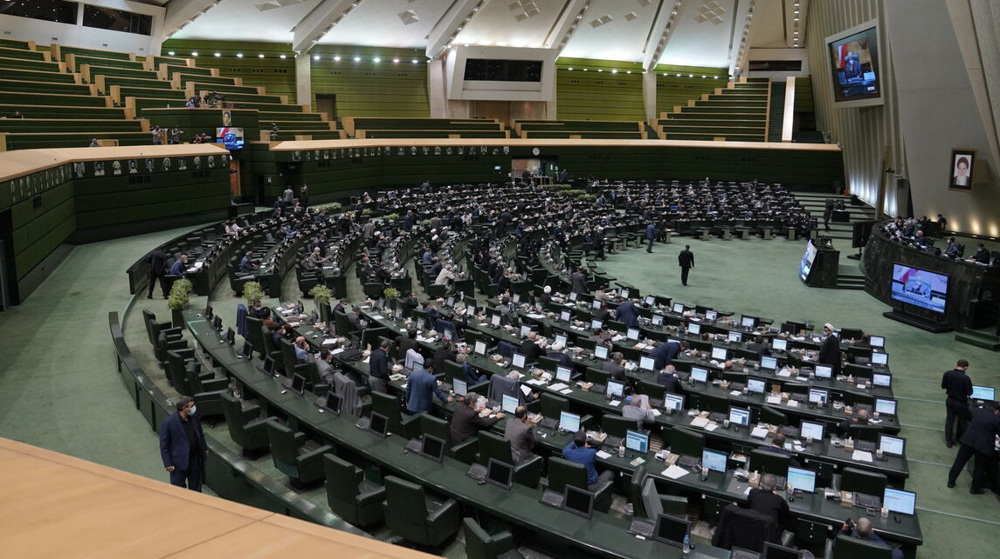European court finds Lithuania, Romania complicit in CIA torture
The European Court of Human Rights (ECHR) has ruled that Lithuania and Romania were complicit in an illegal US torture program for allowing the CIA to hold terror suspects in secret jails on their soil.
The court issued the ruling on Thursday following complaints lodged by two terror suspects in 2011 and 2012, saying they were unlawfully detained and tortured at CIA "black sites" in Romania and Lithuania from 2004 to 2006.
According to the ECHR ruling, Romanian authorities allowed the CIA to hold Saudi national Abd al-Rahim al-Nashiri at a secret prison from April 2004 to November 2005, despite knowing that the suspect would face torture and death penalty.
Nashiri is accused of launching maritime terror attacks, including the 2000 bombing of the USS Cole in Yemen which killed 17 people.
The court also found Lithuania complicit in hosting a secret CIA detention facility where Palestinian al-Qaeda operative Abu Zubaydah was illegally jailed from February 2005 to March 2006.
According to a 2014 US Senate report, both Abu Zubaydah and Nashiri, who are currently held at the US military prison in Guantanamo Bay in Cuba as "high-level detainees," were subject to "enhanced interrogation techniques," including waterboarding or simulated drowning in CIA detention.
The European court found Lithuania and Romania "responsible for the violation" of the rights of the two suspects under the European Convention on Human Rights which prohibits torture and death penalty.
The ECHR ordered both countries to pay $117,000 to each complainant.
Following the 9/11 attacks, the CIA transferred detained al-Qaeda suspects to several "black sites" in different parts of the world in an attempt to get away with the restrictions within the US jurisdiction.
Some of the enhanced interrogation techniques exercised for getting confessions at the CIA sites include intense sleep deprivation to the point of hallucination, sexual humiliation, being crammed into coffin-size boxes, subjection to extreme heat or extreme cold and rectal rehydration.
The ECHR said its ruling was mainly based on the information found in the US Senate report, as neither Nashiri nor Abu Zubaydah were accessible, noting that the report "spoke clearly of cooperation with the domestic authorities and of them being provided with millions of dollars for 'support' for the CIA extraordinary rendition program."
Although the US Senate report did not identify the location of the CIA black sites, the ECHR had already condemned Poland in 2014 for allowing the detention of both Nashiri and Abu Zubaydah at a site in the country in 2002 and 2003.
The Polish president at the time, Aleksander Kwasniewski, later said that former US president George W. Bush had told him that the CIA techniques resulted in "important benefits." Bush's claim, however, was disputed by the Senate report.
Following the Senate report, prosecutors in Lithuania and Romania later launched investigation into the detention facilities.
In 2017, Polish officials pledged to prohibit such sites in the country, in response to US President Donald Trump's claims that waterboarding and other similar techniques, which are currently banned, had proven to be effective.
The US president has also said terror suspects could again be sent to Guantanamo Bay, despite the previous administration's efforts to shut down the controversial detention center.
Iran Armed Forces pledge firm response to any hostile act
General Soleimani was 'architect of Axis of Resistance’ in region: Iran FM
VIDEO | Somalis protest against Israel's recognition of Somaliland
UN rapporteur says Georgetown cut ties over exposing Israel’s genocide in Gaza
VIDEO | Press TV's news headlines
West-funded body conspired against EU anti-fraud office after corruption findings: Report
Iran heralds clean energy future with landmark geothermal power plant at Mount Sabalan
Iran warns Israel’s recognition of Somaliland aims at destabilizing entire region












 This makes it easy to access the Press TV website
This makes it easy to access the Press TV website